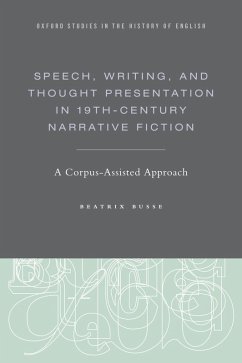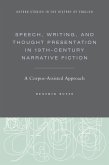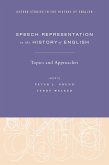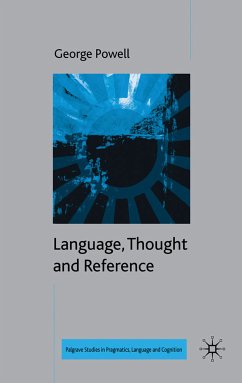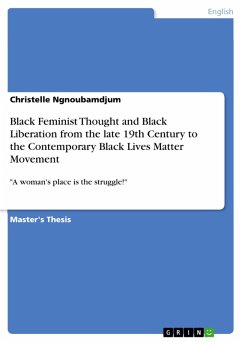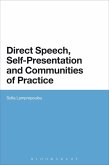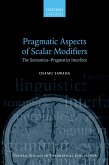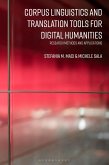Reference to or quotation from someone's speech, thoughts, or writing is a key component of narrative. These reports further a narrative, make it more interesting, natural, and vivid, ask the reader to engage with it, and reflect historical cultural understandings of modes of discourse presentation. To a large extent, the way we perceive a story depends on the ways it presents discourse, and along with it, speech, writing, and thought. In this book, Beatrix Busse investigates speech, writing, and thought presentation in a corpus of 19th-century narrative fiction including
Frankenstein,
Jane Eyre,
Wuthering Heights,
Oliver Twist, and many others. At the intersection between corpus linguistics and stylistics, this book develops a new corpus-stylistic approach for systematically analyzing the different narrative strategies of discourse presentation in key pieces of 19th-century narrative fiction.
Speech, Writing, and Thought Presentation in 19th-Century Narrative Fiction identifies diachronic patterns as well as unique authorial styles, and places them within their cultural-historical context. It also suggests ways for automatically identifying forms of discourse presentation, and shows that the presentation of characters' minds reflects an ideological as well as an epistemological concern about what cannot be reported, portrayed, or narrated. Through insightful interdisciplinary analysis, Busse demonstrates that discourse presentation fulfills the function of prospection and encapsulation, marks narrative progression, and shapes readers' expectations.
Dieser Download kann aus rechtlichen Gründen nur mit Rechnungsadresse in A, B, BG, CY, CZ, D, DK, EW, E, FIN, F, GR, HR, H, IRL, I, LT, L, LR, M, NL, PL, P, R, S, SLO, SK ausgeliefert werden.

